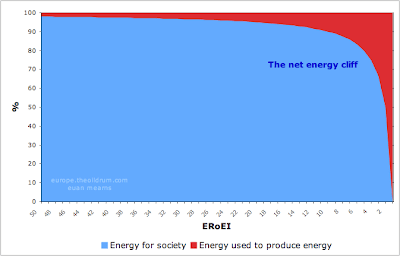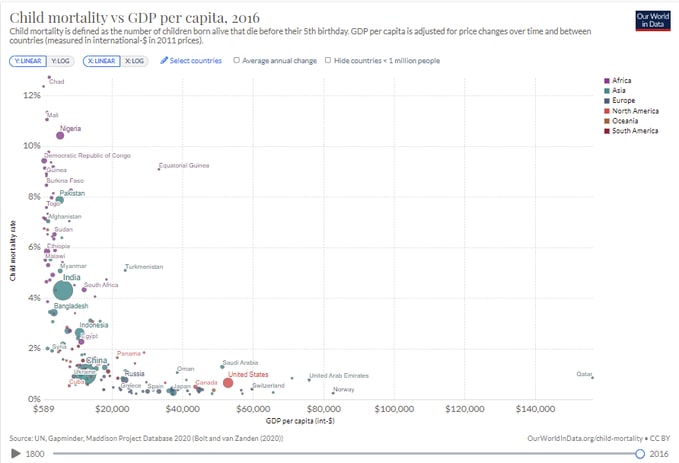I'm sure this is a very unpopular take but I feel obliged to share it: I find the "pausing AI development is impossible" arguments extremely parallel to the "economic degrowth in rich countries is impossible" arguments; and the worse consequences for humanity (and its probabilities) of not doing doing them not too dissimilar. I find it baffling (and epistemically bad) how differently these debates are treated within EA.
Although parallel arguments can be given for and against both issues, EA have disregarded the possibility to degrowth the economy in rich countries without engaging the arguments. Note that degrowthers have good reasons to believe that continued economic growth would lead to ecological collapse --which could be considered an existential risk as, although it would clearly not lead to the extinction of humanity, it may very well permanently and drastically curtail its potential. The EA community has not addressed these reasons, just argued that economic growth is good and that degrowth in rich countries is anyway impossible. Sounds familiar? "AI development is good and stopping it is anyway impossible".
I have this impression since long and I'd have liked to elaborate it it in a decent post, but I don't have the time. Probably I'm not the only one having this impression so I would ask readers to argue and debate below. Especially if you disagree, explain why or upvote a comment that roughly reflects your view rather than downvoting. Downvoting controversial views only hides them rather than confronting them.
[Additions:
I want to make clear that I find the term degrowth misleading and that many people in that movement use terms like a-growth, post-growth, growth agnostics.
I want to thank the users who have engaged and will engage in the discussion! This was the main objective of the post, thanks.]
[Addition 2:
I think this tweet (and Holly's repost) makes the comparison ever more clear.]



But can it? and with what consequences? The EROI (Energy Return On energy Investment) of solar and wind are not great (wind better than solar), they are very resource-intensive, they need storage (effectively making their EROI lower and their resource-intensivity larger) and there needs to be over-capacity of production. In addition, they use space, a lot of it if we want to produce most of the energy demand with them -AFAIK, eg. UK basically do not have enough land to produce the energy they'd need (yes, there is off-shore wind as well, it is a comment to illustrate the magnitude), and the only way we have to transport it, batteries, have low energy-density and is again very resource-intensive.
Note: low EROI basically means that a bigger share of the energy produced needs to be reinvested to produce energy (a larger share of the economy is dedicated to produce energy). It is very useful to plot "Energy available for consumption" vs "EROI". It shows that energy sources with too low EROI are basically useless for society. I don't go into numbers here because EROI calculations are very difficult to be made consistent between different energy sources and are difficult to calculate for the whole system. But the concept is clear and a system run with renewables is, at least, much closer to the energy cliff than we would like.